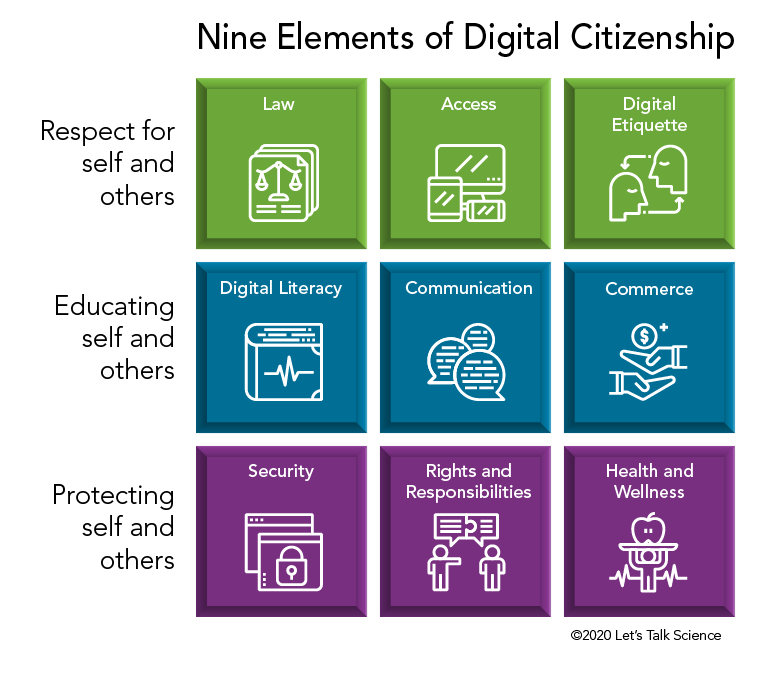╭────────────────────────────────»»❀❀❀««────────────────────────────────╮
Welcome everyone,
In today’s digitally driven world, it is crucial that individuals – both young and old – understand the concepts of cyber safety and digital citizenship to best ensure safe and responsible digital use. Upon reflecting on my own schooling experiences, I noticed that cyber safety was often treated as an afterthought. It was not until specific events – like cyberbullying – occurred that my school would address cyber-related topics. For example, after an incident had occurred in relation to the spread of intimate photographs, our school responded by bringing in the Regina Police Service (RPS). Although this intervention from the RPS sounded good in theory, the presentation was conducted in a reactive way – scare tactics – rather than a proactive way – education into proper use. Thus, leaving us with large gaps of knowledge as opposed to new understandings.
When teaching concepts such as digital citizenship, it is important for educators to always answer the why – and the occasional why not – questions. It is one thing to say, “be kind online,” and it is another to explain WHY someone should be kind online. Those why or why not reasonings are what youth – and adults – need to hear and understand in order to make informed decisions on their own. Going forward, I intend on including the resources we explored this week into my teaching practice, starting with Jason Ohler.
In “Character Education for the Digital Age“, Jason Ohler sheds light on the urgency of addressing digital citizenship within schools. He challenges the notion of treating students as leading two separate lives—one offline and one online—and advocates for integrating their digital experiences into their broader educational journey. Ohler emphasizes the importance of nurturing capable digital citizens who can balance individual empowerment with social responsibility, a sentiment that resonates deeply in today’s digitally saturated world.
Mike Ribble’s framework of nine elements of digital citizenship offers a structured approach for educators to cultivate responsible digital behavior among students. From digital access and communication to security and privacy, each element addresses crucial aspects of digital citizenship, providing educators with a roadmap to empower students to navigate the digital world confidently and ethically.

Additionally, the S3 Framework – Safe, Savvy, and Social – provides a practical guide for teaching digital citizenship, focusing on protecting oneself and others, educating oneself and others, and respecting oneself and others in the digital realm. By incorporating these principles into education from an early age, educators can equip students with the necessary skills and knowledge to navigate the complexities of the digital world responsibly.
Thank you so much for reading!
╰────────────────────────────────»»❀❀❀««────────────────────────────────╯